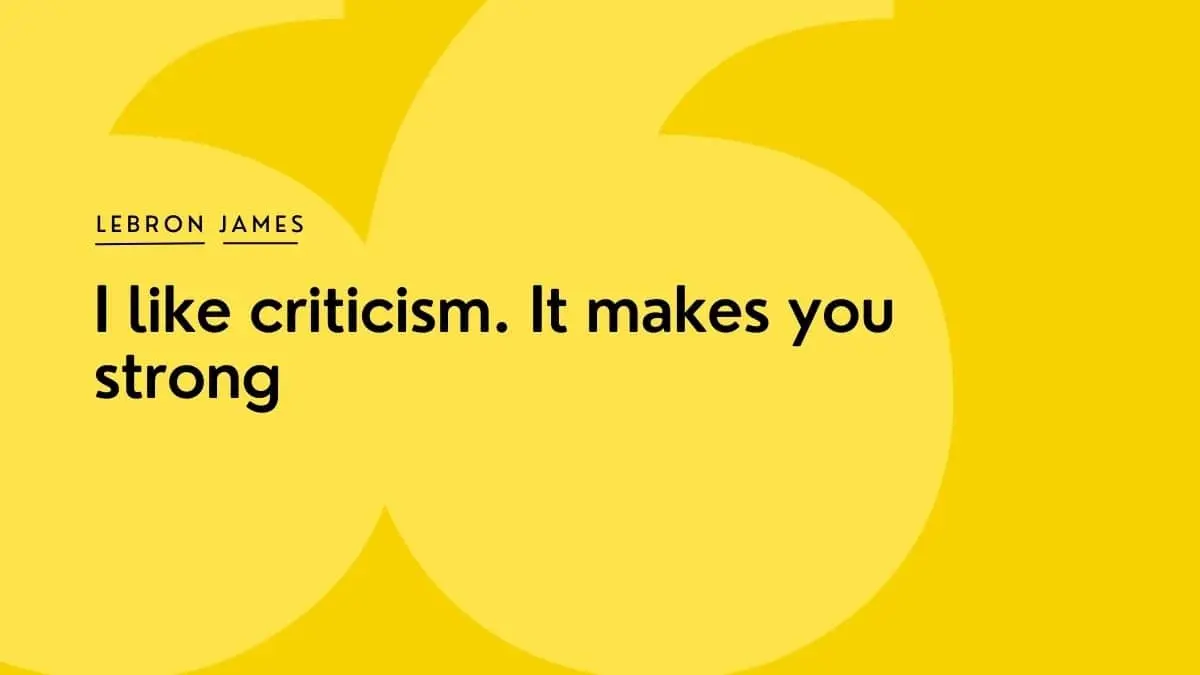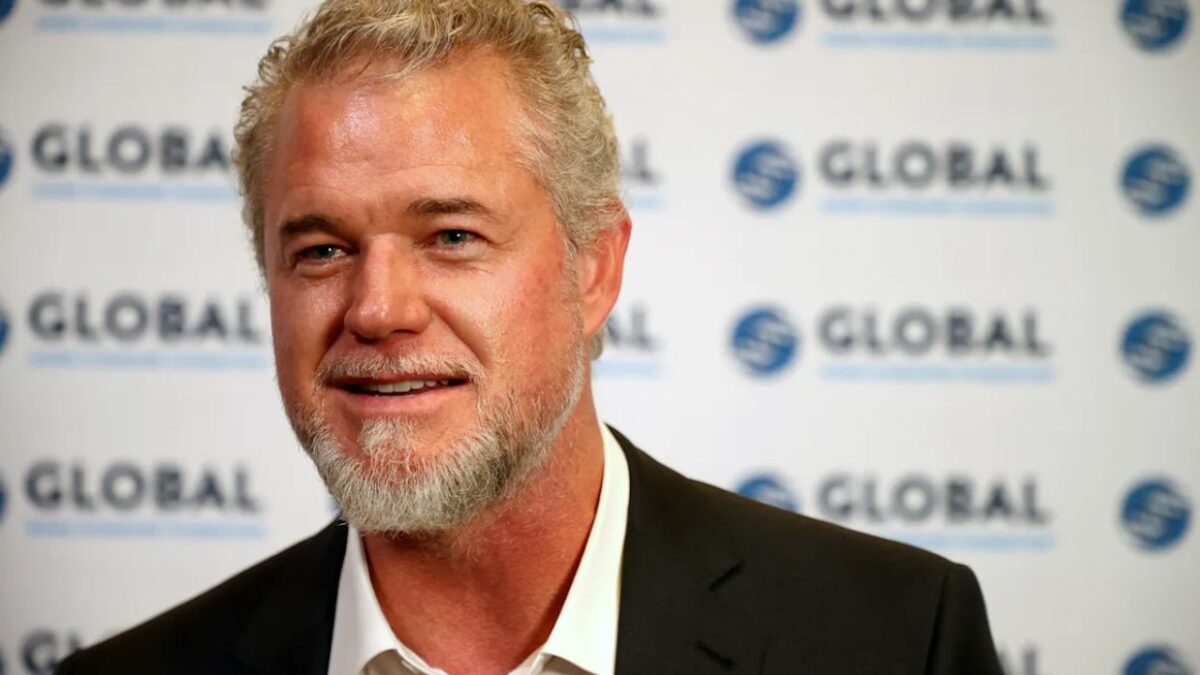Who hasn’t heard of LeBron James? A household name and a global icon, James is much more than just one of the greatest basketball players in history. His wisdom extends off the court, offering us profound insights into life, growth, and personal development. One such piece of wisdom from him is his philosophy on criticism. He once said, “I like criticism. It makes you strong.” This simple, yet profound statement, encapsulates a mindset that isn’t easy to adopt but is incredibly rewarding once embraced.
In a world that often shies away from criticism, preferring praise and validation, LeBron’s view stands out as unique, challenging, and enlightening. This isn’t a quote from someone who has never faced adversity, but a mantra from a man who has faced immense criticism and pressure from an early age and still managed to become one of the world’s most respected athletes.
The Power of Criticism
To some, the word ‘criticism’ might feel like a sting, an attack on one’s efforts and persona. However, if we look deeper, we find that criticism, when constructively applied, can be a vital ingredient in the recipe for growth, success, and excellence. And no one exemplifies this better than LeBron James.
Criticism can be viewed as an impartial audit of our actions and decisions. It provides a different perspective, allowing us to see things that we might have overlooked or ignored, thereby helping us fill in our gaps. In a performance-driven profession like sports, criticism, either from a coach, a fellow teammate, or even oneself, can significantly fine-tune the player’s skills and strategies.
Consider the sports industry. After every game, players and teams go through a comprehensive debriefing where performances are critiqued. In these sessions, it’s not just the mistakes that are highlighted, but also the opportunities for improvement. It is the criticism and the subsequent response to it that fosters a culture of continuous improvement.
In the corporate world, the same principles apply. Successful businesses thrive on feedback, both positive and negative. Negative feedback, or criticism, helps businesses identify areas where they need to improve, innovate, or change. Companies that welcome and respond to such feedback often find themselves ahead of their competitors.
On a personal level, criticism can help us become better versions of ourselves. It makes us aware of our flaws, provides a chance for introspection, and eventually aids in personal development. The key is not to view criticism as an attack, but as a chance for improvement.
In LeBron James’ case, he has used criticism to fuel his journey towards becoming one of the greatest basketball players of all time. The critique of his game did not discourage him; instead, it made him work harder to improve his skills and his overall gameplay.
Criticism and Resilience
Embracing criticism as a tool for improvement is only half the battle won. The next step involves turning that critique into resilience and strength – a process that LeBron James has mastered throughout his illustrious career.
Resilience, in essence, is our ability to bounce back from setbacks, adversities, or failures. It is a mental toughness that allows us to face challenges head-on and emerge stronger on the other side. LeBron’s quote subtly brings to light this symbiotic relationship between criticism and resilience.
When we confront criticism, we are in essence facing a personal challenge. We are forced to look at ourselves and our actions under a microscope, facing the areas where we fall short or need improvement. This process is not comfortable, but like a muscle being stressed under the weight of a heavy load, it is a process that can make us stronger.
The act of accepting criticism and using it as a motivator to improve fosters a resilience that is vital for success in any field. In sport, it could mean adjusting techniques, honing skills, or changing strategies based on feedback. In business, it might involve innovating processes, enhancing products, or improving customer service. On a personal level, it can result in developing better habits, changing unhealthy patterns, or fostering growth in various aspects of life.
LeBron James, through his public persona and his performance on the court, demonstrates how criticism has been a cornerstone in the building of his resilience. He has been challenged, doubted, and even dismissed, but with every criticism, he seems to return stronger and more determined.
However, the journey from criticism to resilience isn’t a straight path. It requires patience, effort, and a healthy perspective towards criticism. The aim is not to become immune to criticism, but to understand its value and use it as a springboard towards personal growth and strength.
Conclusion
We’ve traversed a journey of understanding criticism from the viewpoint of one of the world’s greatest athletes – LeBron James. His words, “I like criticism. It makes you strong,” offer us a radically empowering perspective, presenting criticism not as an attack, but as a valuable tool for personal growth and resilience.
We have seen how criticism is an integral part of success, both in sports and in life. It provides us with an alternate perspective, pushing us to confront our flaws and to work towards improving ourselves. It serves as the forge that transforms our resilience, enabling us to bounce back stronger from setbacks and adversities.
Embracing criticism like LeBron James doesn’t necessarily mean agreeing with every critique you receive. It involves being open to the possibility of growth, assessing the criticism, considering its source and validity, and then deciding how to act upon it. If the criticism is constructive, use it as a catalyst for self-improvement. If it’s unjust or unhelpful, learn to let it go without letting it affect your self-esteem.
Also Read: Don’t Cry Because It’s Over, Smile Because It Happened – Dr. Seuss





